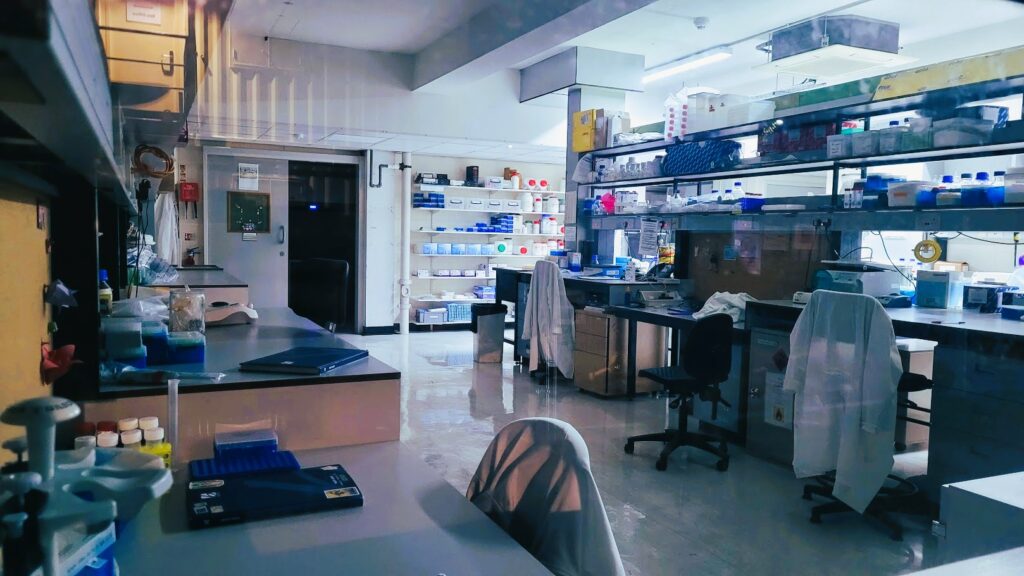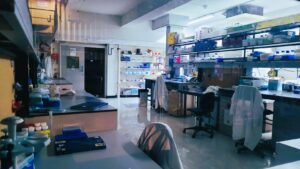Quantum software succeeds in speeding up pharmaceutical complex chemistry research

Laboratory at night. — Image by © Tim Sandle
New research from quantum software company Terra Quantum and RWTH Aachen University shows that a new quantum software technique could speed up drug development and cut costs.
Traditional pharmaceutical trials can cost between $1-2 billion and take years to complete. This new approach uses a new method to generate molecular structure datasets with faster, more computationally efficient and accurate methods. This could make drug development up to 20 times faster than traditional methods. This is in determining the molecular structure, when compared with classical approaches.
This allows for an acceleration in the drug design process by reducing the time needed to find a drug candidate most likely to be successful, according to Quantum Insider.
Understanding structures of molecules is often a bottleneck in the drug discovery process. It is generally costly and time consuming to attain high quality molecular structure data. The new approach generates molecular structure datasets with faster, more computationally efficient and accurate methods.
The computational process being re-engineered is called “conformer search,” which is used to determine the structure of a molecule. The goal of this process is to find the most stable 3D structures of molecules.
In contrast with conventional AI methods, Terra Quantum’s approach does not need training data and performs well in situations where datasets are limited.
The new technique improved upon the traditional approach in the analysis and prediction of a wide dataset of molecules, including penicillin and ritonavir (a molecule used in treatment for HIV).
The computational challenge is that the number of possible conformations increases exponentially with respect to the number of flexible bonds of a molecule. The time and computing power required to search for the conformational space can quickly become prohibitive.
The entire drug development process can cost between $1 – $2 billion per approved drug, with a large percentage of that going on clinical trials. Finding stable molecules is central to drug development and the creation of new materials and chemicals.
Unlike traditional approaches to determining molecular structures, Terra Quantum’s tensor network-based approach can find and explore molecules without the need to produce them synthetically.
Several approaches have been used to address this problem for small-and medium-sized molecules, one of the best performing ones being the conformer rotamer ensemble sampling tool (CREST), an open-source program that automates molecular chemical research. The Terra Quantum approach has shown significant speed-up when compared to CREST.
The technology opens up opportunities to treat large molecules that would otherwise lead to an explosion in the computational costs.
Tensor networks are mathematical structures used in quantum physics to efficiently represent and manipulate complex multi-dimensional data. These structures can represent complex configurations and operate directly on the mathematical properties of the molecules without the need to be trained on pre-existing data.
The next phase of this research will focus on larger molecules, cyclic peptides, calculating protein binding affinities and working with industry partners to address specific needs.
The paper, “Tensor Train Optimization for Conformational Sampling of Organic Molecules” has been published on ChemRxiv.
Quantum software succeeds in speeding up pharmaceutical complex chemistry research
#Quantum #software #succeeds #speeding #pharmaceutical #complex #chemistry #research





